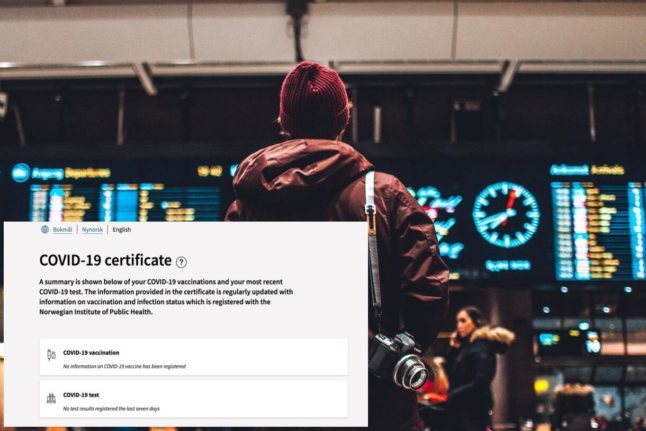The certificate will be used domestically at first and will come in the form of a verifiable QR code that will glow green when scanned if you have been vaccinated, recently returned a negative coronavirus test, or have had COVID-19 in the previous six months.
In Norway, you are considered vaccinated three weeks after receiving your first jab of a vaccine.
“We want to create a system for safe and verified documentation of vaccination status, negative test results and immunity following testing positive for coronavirus,” Health Minister Bent Høie said in a statement.
The government hasn’t revealed too many specific details on how the domestic certificates would be used. But, Høie announced at a government press conference on Wednesday they would be used to grant access to large events during the summer.
READ MORE: Covid-19 epidemic could ‘disappear’ by the summer
Norwegian PM Erna Solberg has also previously said that the certificates would be utilised to speed up the government’s reopening plan and will also be used for domestic tours and cruises.
There will be two different versions of the vaccine, one simplified version for use within Norway and one for crossing borders in the EU and EEA as part of the EU’s vaccine passport scheme.
The reason for having separate vaccine certificates for domestic use and European travel is due to the EU requiring more information than is listed on the domestic version.
“It will be necessary to show, for example, vaccine name, number of doses and vaccination date. Therefore, we are making a different version for European travel,” Health Minister, Høie, said.
The version for use within Norway’s borders will not display as much information as the version used for travel.
The Covid-19 passport for travelling in the EU and EEA will be ready in early July when the EU launches its vaccine passport.
READ MORE: What’s the latest on how the EU’s ‘Covid passports’ will work for travellers?
The government also announced that travellers that have been vaccinated in Norway or have tested positive and recovered from the virus in the country would not have to enter quarantine hotels and can instead carry out the quarantine period at home from June 3rd
Despite Norway introducing the full coronavirus certificate next week, current entry restrictions that limit entry to a very small group outside of residents and citizens would remain in place. Those currently in quarantine hotels that meet these requirements will also be given leave from the hotels.
The current advice to avoid global travel will continue until July 1st too.
The vaccine pass will be downloadable to smartphones and tablets. The government is also testing a version of the vaccine pass with a QR code that can be printed out for non-digital users.



 Please whitelist us to continue reading.
Please whitelist us to continue reading.
Member comments